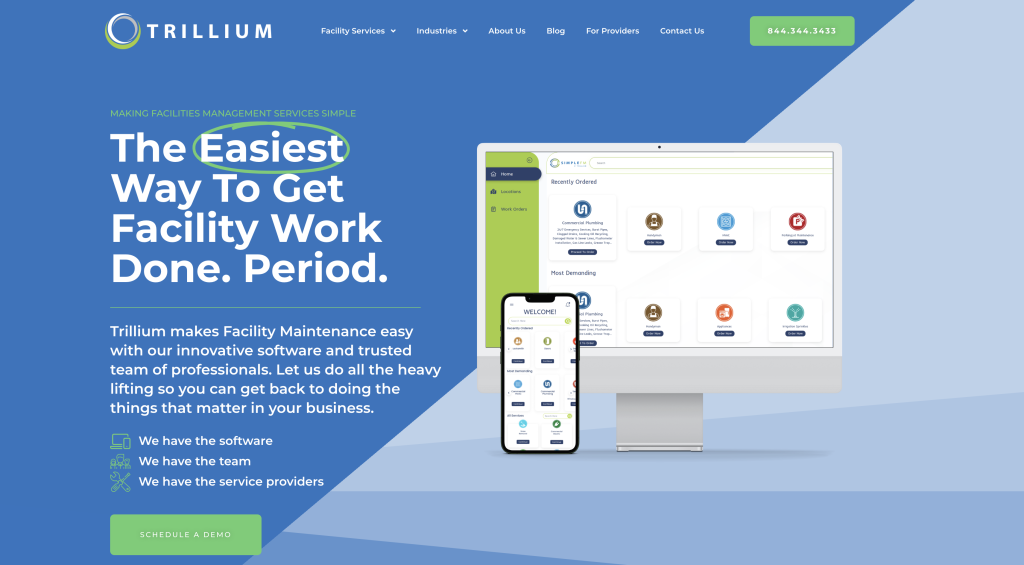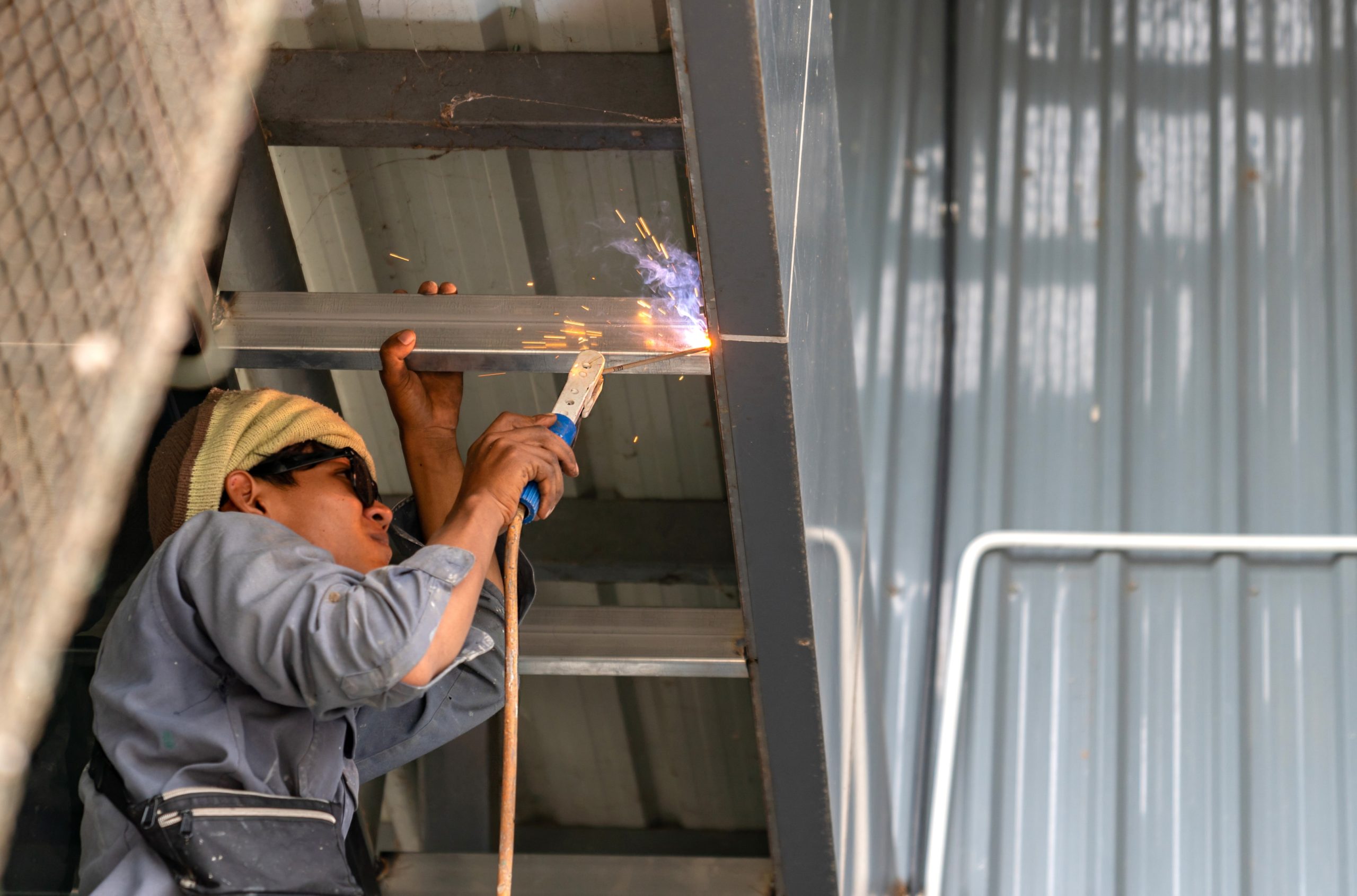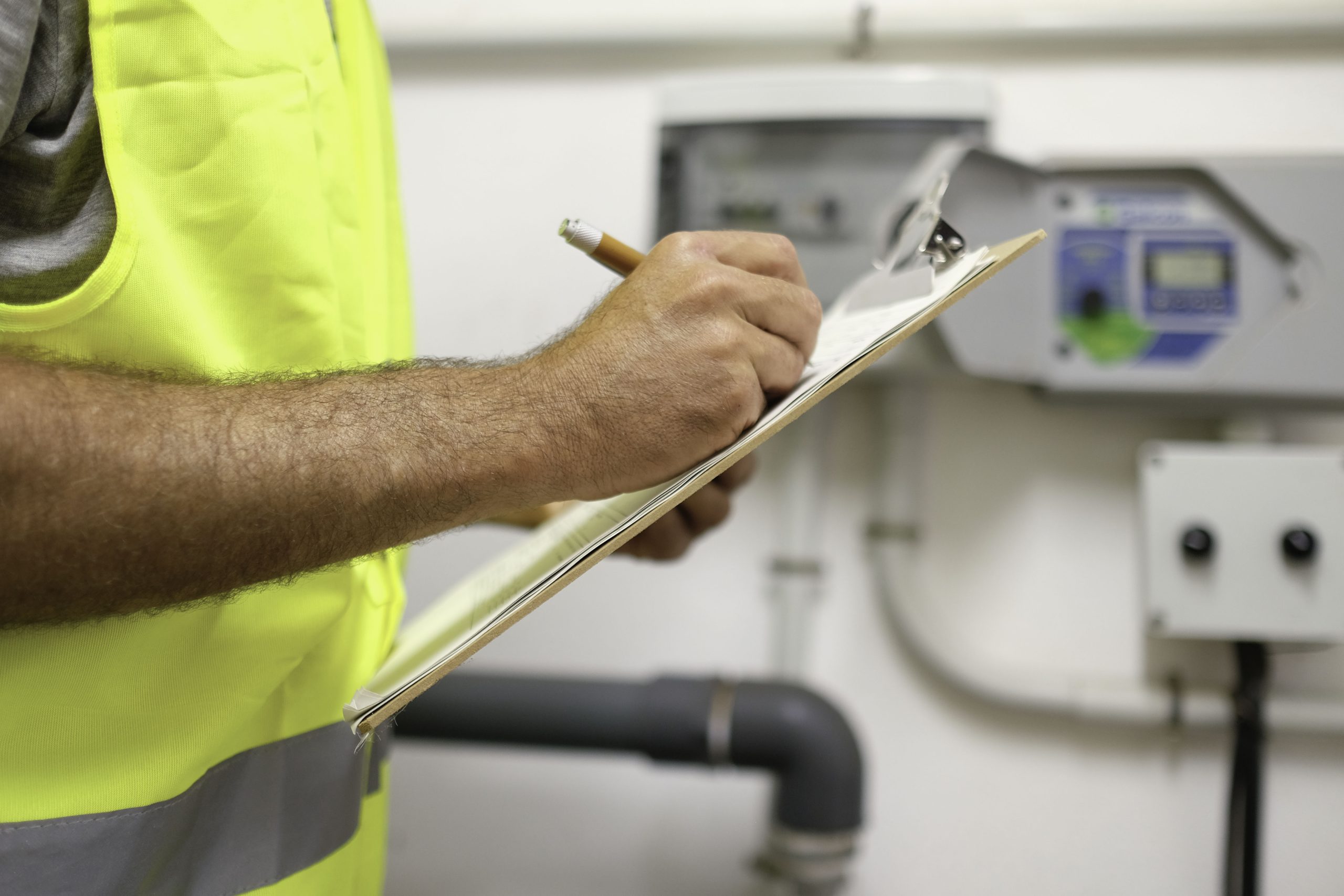Ever walked into work and found a puddle where it shouldn’t be? A slow drip might not seem like a big deal at first, but if you give it enough time, it turns into soaked floors and sky-high water bills. Clogged drains, leaking pipes, and outdated fixtures don’t just mess with your plumbing. They interrupt business, frustrate employees, and drive up costs when you least expect it.
Most plumbing failures happen because of neglect. Skipping inspections, delaying repairs, or using outdated fixtures leads to higher repair costs and unexpected shutdowns.
A well-maintained and efficient plumbing system lowers water and energy costs and extends the lifespan of pipes and equipment.
These 10 plumbing strategies will help you improve efficiency, avoid costly repairs, and keep your business running without interruptions.
1. Schedule Regular Plumbing Inspections
Regular plumbing inspections help catch small problems before they turn into expensive repairs. A licensed plumber can:
- Check for leaks before they cause water damage.
- Clear slow drains to prevent clogs and backups.
- Test water pressure to avoid pipe damage.
- Inspect water heaters for signs of failure.
Many business owners skip inspections because plumbing issues are not always visible. However, waiting for a breakdown leads to higher repair costs and unexpected downtime.
Scheduling regular maintenance ensures plumbing stays in check and prevents last-minute disruptions. A well-maintained plumbing system keeps operations running without interruptions and improves customer satisfaction.
2. Train Employees on Plumbing Best Practices
Even with regular plumbing inspections, daily habits affect plumbing efficiency. Employees might not realize that flushing paper towels, pouring grease down the sink, or ignoring a slow drain can lead to hefty repair bills.
Training employees on basic plumbing best practices prevents avoidable damage and reduces maintenance costs. Clear guidelines help keep commercial plumbing systems in good condition:
- Flush only toilet paper. Wipes, paper towels, and hygiene products clog pipes.
- Keep grease out of drains. Grease buildup blocks pipes.
- Report leaks and slow drains early. A dripping faucet or sluggish drain can signal a bigger issue.
- Be mindful of water consumption. Running water unnecessarily increases utility costs. Encourage employees to turn off faucets when not in use.
Employees will not always notice plumbing problems unless they cause an immediate issue. A simple reporting system makes sure small problems get addressed before they escalate.
With Trillium’s facility maintenance software, businesses can submit work orders, track maintenance, and resolve issues before they become major repairs.
3. Upgrade to Water-Efficient Fixtures
Plumbing repairs cost money, but so does everyday water use. Leaky faucets, outdated toilets, and inefficient sinks waste gallons of water every day. Even if leaks seem small, the repair costs add up fast.
Businesses that rely on water for daily operations, like restaurants, hotels, or office buildings, can lower utility bills and reduce waste by switching to water-saving fixtures.
- Install low-flow fixtures like toilets and urinals. Older toilets use up to five gallons per flush. New models use as little as 1.28 gallons, cutting water usage significantly.
- Use sensor-activated faucets. These shut off automatically when not in use, preventing unnecessary water waste and improving hygiene.
- Upgrade to water-efficient dishwashers and appliances. High-efficiency models use less water without reducing performance. This helps lower operating costs.
- Switch to tankless water heaters. These heat water on demand, eliminating standby energy waste and lasting longer than traditional models.
Upgrading plumbing fixtures and promoting water conservation practices reduces waste and improves operational efficiency.
4. Invest in Smart Leak Detection Systems
Leaks often go unnoticed until they cause serious damage. A hidden pipe leak can waste thousands of gallons of water before anyone realizes there’s a problem. Smart leak detection systems monitor water usage in real time and send alerts when irregular flow is detected.
- Prevent water damage before it escalates. Slow leaks can lead to structural damage and mold growth.
- Reduce excessive water usage. A leaking pipe can quietly waste hundreds of gallons per day.
- Get 24/7 monitoring with plumbing business management tools.
Catching leaks early prevents major disruptions and expensive repairs.
5. Schedule Seasonal Plumbing Maintenance
Plumbing systems face different challenges throughout the year. Cold temperatures can freeze pipes, hot weather can overwork water heaters, and heavy rain can overwhelm drainage systems.
Seasonal maintenance helps businesses stay ahead of potential issues.
- Protect pipes from freezing during winter. Insulate exposed pipes, seal gaps where cold air enters, and keep indoor temperatures stable.
- Inspect pipes and clear drains during spring. Freezing and thawing cycles can create cracks in pipes. Check for leaks and remove debris from drains and gutters.
- Maintain water heaters and monitor usage during summer. Flushing the system and checking for sediment buildup prevents inefficiencies and breakdowns.
- Prepare for colder weather during fall. Check pipe insulation, schedule boiler maintenance, and test sump pumps to prevent flooding and heating failures.
Regular seasonal maintenance reduces plumbing failures, lowers water waste, and extends the lifespan of your system.
6. Insulate Exposed Pipes
Pipes exposed to extreme temperatures, such as those in basements, crawl spaces, or outdoor areas, are at risk of freezing in winter and expanding in the summer. When pipes freeze, they can burst, causing costly water damage.
Installing pipe insulation helps maintain stable temperatures, which reduces the risk of frozen or overheated pipes.
Insulating pipes can also improve energy efficiency by reducing heat loss in hot water pipes, which lowers energy bills. Businesses should inspect insulation annually to guarantee a healthy plumbing system.
7. Install Pressure Regulators
High water pressure may seem harmless, but it puts stress on plumbing systems, causing leaks, pipe bursts, and premature wear on fixtures. A pressure regulator helps control and maintain safe water pressure levels, reducing strain on pipes and appliances.
Most commercial buildings require water pressure between 40 and 80 pounds per square inch (PSI). If the pressure is too high, pipes may crack, fixtures may leak, and water usage may increase.
Installing a pressure regulator ensures that water flows efficiently while preventing long-term damage. Regularly checking water pressure levels can help businesses avoid major plumbing failures.
8. Have an Emergency Plumbing Plan
Plumbing emergencies can shut down business operations quickly. A burst pipe, a clogged drain, or a broken water heater can cause flooding, property damage, and costly downtime. Having a plan in place helps businesses respond quickly and minimize damage.
A good emergency plumbing plan includes:
- Knowing where the shut-off valves are. Shutting off the water immediately can stop flooding and prevent further damage. Every employee should know where the valve is and how to use it.
- Keeping track of emergency repairs. Recurring plumbing issues are a sign of bigger system problems. Work order software, like Trillium, can help businesses track repairs, schedule maintenance, and prevent repeat failures.
9. Implement a Drain Cleaning Routine
Drains collect debris, grease, and mineral buildup over time, leading to slow drainage or full blockages. Regular drain cleaning prevents clogs, which is essential for maintaining clean and functional restrooms in any business setting.
Businesses should schedule periodic drain cleaning to keep pipes clear. Using enzymatic drain cleaners can break down organic waste safely without damaging pipes.
For commercial kitchens and restaurants, installing grease traps and cleaning them regularly helps prevent buildup and sewer line issues.
10. Choose the Right Plumbing Service Provider
An unreliable plumbing company wastes time and money. Some providers take too long to respond, make temporary fixes, or overcharge for basic repairs. A reliable provider fixes problems fast, prevents future issues, and keeps plumbing systems running smoothly.
Finding the right plumbing contractors is about more than just availability. Businesses need a service that delivers quality work and understands commercial plumbing industry systems.
- Hire a plumber with commercial experience. Business plumbing is more complex than residential.
- Choose a provider who understands large-scale water systems, high-traffic restrooms, and industry-specific plumbing needs.
- Ask about preventative maintenance. Regular maintenance prevents expensive breakdowns.
Professional plumbers who offer drain cleaning, leak detection, and water heater inspections will save businesses money in the long run.
Get Your Facility Plumbing Work Done Easily with Trillium

Plumbing issues can disrupt business operations and lead to costly repairs, but managing maintenance shouldn’t come with hidden fees or long-term commitments. Traditional facilities management services often charge high markups, require on-site personnel, and lock businesses into contracts that aren’t always necessary.
Trillium offers a flexible, free-to-use solution that connects businesses directly with vetted service providers. There are no minimum order volumes, no extra fees, and no long-term commitments—just on-demand plumbing support when it’s needed. This helps businesses reduce maintenance costs while keeping operations running smoothly.
With Trillium, businesses can track service requests, schedule preventative maintenance, and respond to plumbing emergencies quickly.
Whether it’s fixing leaks, clearing drains, or maintaining water heaters, having access to a reliable service network translates to fewer disruptions and lower repair costs.
Don’t wait for a plumbing emergency to disrupt your operations. Contact Trillium and experience effortless plumbing maintenance!
FAQs About Efficient Plumbing Tips for Businesses
How can I prevent common plumbing issues in my commercial property?
Schedule regular maintenance to catch small problems before they turn into expensive repairs. Fix leaks immediately, inspect plumbing systems often, and train employees to use facilities properly. Effective customer management helps plumbing issues get reported and fixed quickly, preventing disruptions.
What should I look for when choosing a commercial plumbing service?
Choose a plumbing service that responds fast, specializes in commercial systems, and offers 24/7 emergency plumbing services. Read reviews, check their experience with businesses like yours, and make sure they provide long-term solutions instead of quick fixes.
How can I reduce water consumption in my business facility?
Install low-flow fixtures, fix leaks immediately, and train employees to use water efficiently. Smart leak detection systems and field service management software help track plumbing performance and schedule maintenance before issues escalate.
What are the signs that my business needs a plumbing upgrade?
Watch for frequent leaks, inconsistent water pressure, and outdated fixtures. These problems don’t go away on their own and often lead to costly repairs. A successful plumbing business invests in modern systems to improve efficiency and reduce downtime. If plumbing problems keep coming back or your system is over a decade old, upgrading will lower costs and improve reliability.









